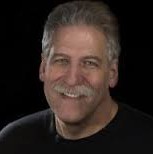Michael Brown’s Authentic Fire, reviewed by William De Arteaga
In Chapter 4, “The Genetic Fallacy and Guilt by association,” Brown shows the many occasions that MacArthur uses fallacious historical argumentation and guilt by association to discredit Pentecostalism. For instance, MacArthur attacks the entire Pentecostal movement because Charles Parham, one of its founders, was a racist. In fact, although Parham accepted segregation, as almost all Americans of his day, he was also ahead of his times in attempting to bring about racial reconciliation. He led inter-racial camp meetings in his home state of Kansas, and was noted in his times for his exceptionally good relations with African-American pastors.[10] The whole argument is fallacious and unbiblical. God often uses imperfect persons to do great things for the Kingdom of God. Brown points out how Martin Luther, the founder of Protestantism, was deeply and barbarically anti-Semitic. Here Brown uses his expertise in Jewish history to lay out the unpleasant facts of Luther’s vitriol towards the Jews and its horrible consequences when his writings were later used by the Nazis to justify the Holocaust.[11]
Chapter 5 centers on countering the MacArthur’s misuse of Jonathan Edwards’ classic view of discerning revivals by “testing the spirits.” Brown very ably summarizes Edwards’ criterion of discernment, and makes note of the fact that Edwards was never upset by the bodily manifestations of revival. That is, that when they occur they could be from God or not, as in a “flesh” desire for attention. MacArthur, on the contrary, ridicules and condemns all bodily manifestations as not from God. In this chapter, Brown also defended the progress and orthodoxy of African Pentecostalism, for which Brown has much personal experience, and MacArthur does not.
Chapter 6, “Sola Scriptura” contains many details of Brown’s journey from Judaism to Pentecostalism, and how he carefully studied the classic works of cessationism such as Benjamin Warfield’s Counterfeit Miracles (1918). But by experiencing God’s presence and love, and seeing His miracles firsthand, he rejected cessationism. The salient point of this chapter is that MacArthur’s claim that his analysis of revivals is based solely on scriptural evidence is false. Rather, MacArthur uses biblical evidence seen only through the lens of cessationism to reach his conclusions.
Chapter 7 entitled, “Shall We Burn One Another?” is a sad reminder of what happens when Christians believe they are so right that we cannot respect other Christian viewpoints (MacArthur’s Calvinist phrase for this attitude is “sound doctrine” which relegates non-Calvinist forms of theology as “unsound doctrine”). Brown gives the reader a tour of Christian vs. Christian persecution down through the ages, from the first street battles between the Coptic and Catholic Christians in North Africa (350 AD), to the Protestant Reformers who murdered the Ana-Baptists for daring to believe that infants should not be baptized. From this sad history, and from the dangers inherent in MacArthur’s sectarian rhetoric, Brown suggests certain principles in dealing with Christians we disagree with, such as the fact that we need each other’s’ insights, even if we disagree, or that, “Surgeons cut carefully,” that is, avoid over generalizations, etc.
 Perhaps the most insightful and original contribution of Browns work is found in Chapter 8: “Spirit and Truth: Right Brain and Left Brain.” Brown points to the scientific understanding of the human ability to know and understand which has been categorized by scientists as either “right brain” or “left brain” mode. That is, the hemispheres of the brain specialize in different modes of understanding. The right hemisphere specializes in emotions, music, images and intuition, and the left brain focuses on language, logic, and critical thinking. Most people favor one hemisphere or another, and thus are either more emotional and intuitive, or mostly logical and critical. Few persons are perfectly balanced. Problems arise when persons with one form of predominance do not recognize the reality of the other form of thinking and understanding. Brown identifies MacArthur as heavily “left brained.” This has allowed MacArthur to be an excellent analyzer of logical issues, such as the linguistic analysis of particular scriptures, but have very poor appreciation of the intuitive, and “mystical” elements that are part of religious experiences. This seems to be the reason why MacArthur, a left brainer, has such poor appreciation of charismatic music, or music in general.[12]
Perhaps the most insightful and original contribution of Browns work is found in Chapter 8: “Spirit and Truth: Right Brain and Left Brain.” Brown points to the scientific understanding of the human ability to know and understand which has been categorized by scientists as either “right brain” or “left brain” mode. That is, the hemispheres of the brain specialize in different modes of understanding. The right hemisphere specializes in emotions, music, images and intuition, and the left brain focuses on language, logic, and critical thinking. Most people favor one hemisphere or another, and thus are either more emotional and intuitive, or mostly logical and critical. Few persons are perfectly balanced. Problems arise when persons with one form of predominance do not recognize the reality of the other form of thinking and understanding. Brown identifies MacArthur as heavily “left brained.” This has allowed MacArthur to be an excellent analyzer of logical issues, such as the linguistic analysis of particular scriptures, but have very poor appreciation of the intuitive, and “mystical” elements that are part of religious experiences. This seems to be the reason why MacArthur, a left brainer, has such poor appreciation of charismatic music, or music in general.[12]
Category: Spirit, Winter 2014


